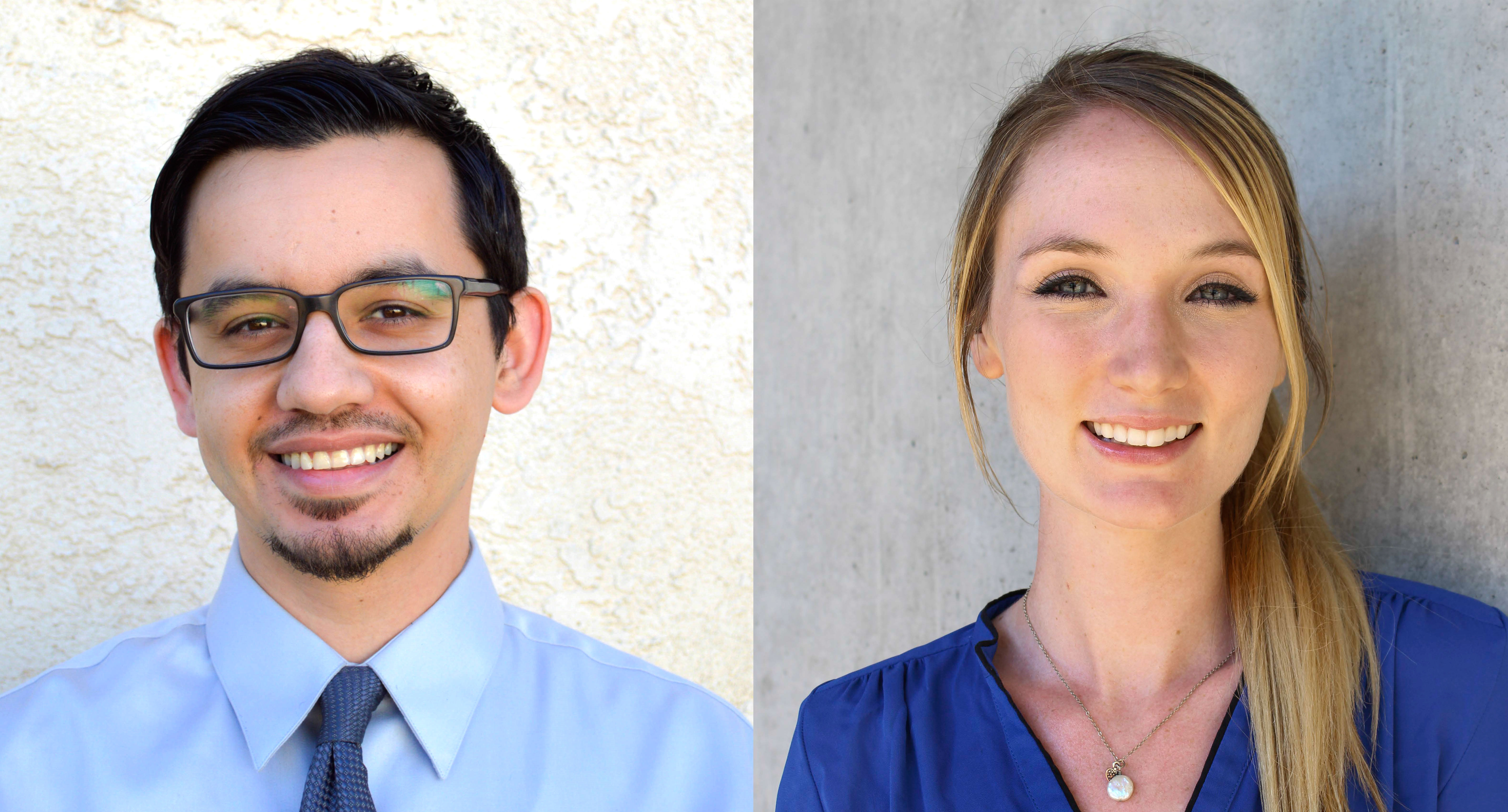
May 3, 2016 - Two UC Irvine engineering students - Louai Labanieh and Melissa Thone - have received Graduate Research Fellowship Program (GRFP) awards from the National Science Foundation. The GRFP is a competitive program that recognizes and supports outstanding graduate students who are pursuing research-based graduate degrees in science and engineering. This year, NSF received close to 17,000 applications and made 2,000 award offers.
A biomedical engineering student, Labanieh hopes to develop rapid diagnostic tests that can identify antibiotic-resistant bacteria – a major health concern worldwide because they are becoming increasingly difficult to treat. According to the Centers for Disease Control and Prevention, each year in the United States, about 2 million people become infected with bacteria that are resistant to antibiotics and at least 23,000 people die as a direct result of these infections. Labanieh works in Professor Weian Zhao’s lab, where he helps take biological samples, such as blood, and disperses them into millions of micron-sized droplets.
“This allows us to isolate rare pathogens, such as a single bacterium, within a tiny volume and reduces interference from background species,” explains Labanieh. “It is kind of like looking for a needle in a haystack, but instead of trying to look through one huge stack, we break the stack into many smaller-sized stacks and look at them independently. This way, the needle is much easier to find. We believe this technology will have a big impact on patient outcomes because it will help doctors prescribe the most effective medication for a given infection.”
After graduating from UCI in June, Labanieh will pursue a doctorate in bioengineering at Stanford University.
Thone, a chemical and biochemical engineering major, is researching the use of extracellular vesicles (EVs) as therapeutic and diagnostic (nanotheranostic) platforms for cancer therapy.
Extracellular vesicles (EVs) are membrane-surrounded structures released by all cells that play major roles in cell signaling, cell communication and in the pathology of certain diseases. EVs have properties that could make them better drug delivery vehicles than current systems, which would allow for more effective treatment of a multitude of diseases. Preliminary studies indicate EVs as promising drug delivery systems and cancer vaccines with minimal side effects.
“I believe that the future of drug delivery is in the integration of diagnostic and therapeutic function in one system using the benefits of nanotechnology and personalized medicine,” says Thone, who will complete her doctorate at UCI.
Since 1952, NSF has provided fellowships to individuals selected early in their careers based on their demonstrated potential for significant achievements in science and engineering. The GRFP is critical to NSF's overall strategy of developing the globally engaged workforce necessary to ensure the nation's leadership in advancing S&E research and innovation.
